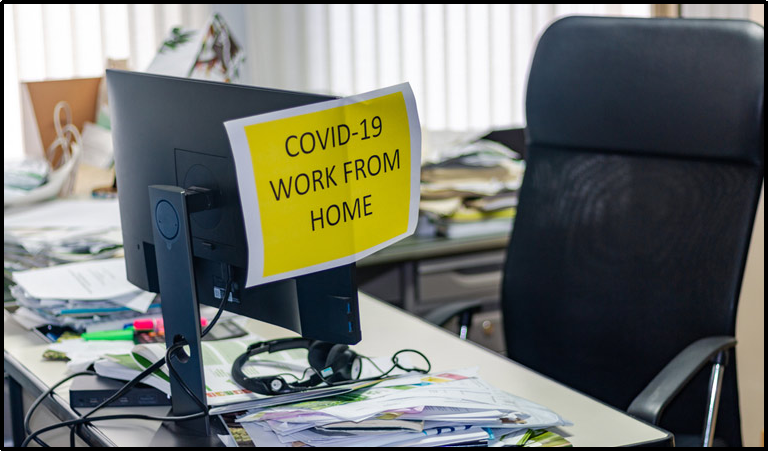Discovering and implementing realistic solutions in an SME, in the COVID19 challenge - A Case Study
16 May 2020 13:45:19

I work for a SME company which is into IT infrastructure, based out of Pune having been in the business for more than 30 years. We employ around 50 people most of who would be with L1/L2 skillsets required to provide IT managed services. Our revenues come from product sales, managed services and IT infrastructure projects. Untill March 2020, the typical challenges faced by us were common like competition, manpower retention, obsolescence, cash flow management etc. But then came the COVID 19 pandemic, out of the blue, which has put players like us in a tailspin with unprecedented implications. The problems with these implications are that they are unforeseen, without any history and without any future visibility. It has created an impact which is not only economical but also social, political and environmental.
What did we do so far…
Coming to terms with the situation in itself was a challenge. Everyone was looking at the neighbour. Who is complying to the lockdown situation first. Could we manipulate the situation like in case of emergencies? Would this lockdown be for a day or two, a week? What all we need to shut-down before leaving office locked? How long will it stay that way? Will we be able to access data and information if we cannot come to work? These were just thoughts before the lockdown brought all physical movement of our team to a complete halt.
Steps towards ensuring safety of the team

> As management of an SME organisation, the first task was to ensure the safety of the employees hence we gave an option to our employees to work from home.
> But considering the business that we are in, it is impractical for all our employees to do so, hence wherever possible, we asked the employees to provide services remotely.
Due to the lockdown, many of our customers were also not functional hence did not require our services. Around the last week of March/ First week of April, we realised that the duration of the lockdown could extend beyond the 2 weeks initially intended, hence we took some steps to mitigate the challenges. We wanted to allay unwanted fears but also to project the factual situation. We also wanted to increase our employee interaction while laying emphasis on improving the skillsets during the lockdown.
Steps towards maintaining team spirit, unity and engagement

> First, we sent a mail when the March 2020 salaries would be credited informing of the possible adverse scenario in the market and asking them to use the monies prudently.
> We encouraged the employees to take the online certification courses and to post the certificates on the team Whatsapp group.
> We also had various quizzes/puzzles to keep them occupied.
> On one of the weekends, we had a virtual potluck where the employee was to post a picture with any food item made by self.
Challenges grew with time
The huge challenge was the month of April 2020 where we had almost negligible revenues with no sign of any improvement or ray of hope out of this situation. The crushing dilemma was how much and when to pay the salaries.
Steps towards addressing the BIG ‘S’ ethical issue
> We started interacting with the customers as well as employees early to let them know that we are facing issues, what they were and what was the extent of the struggle we were facing.
> We had to strike a balance between employees who had worked the entire month providing support remotely and the others who could not.
> Also, we had to take into consideration the support staff like the HR and Finance. It was obvious that we could not have paid the entire salaries for all the staff hence the question was how much to whom.
This is where our organisation mantra of – Company First came into the picture. So the solution that we chose was to pay the entire salary for the employees who had worked the full month and make proportionate revisions based on the revenues streams for the rest. The interest of the organisation has to be foremost because if the organisation collapses, all the employees will be in difficulties. Fortunately, most of our employees and clients have displayed solidarity and understanding, and have been very supportive so far.
What lies ahead ???
The impact of this pandemic will cascade beyond just this quarter Q1 and likely to continue for atleast a couple of quarters. The faster we acknowledge this and move towards the possible remedial actions the better it will be. We, as an organisation, have been through a couple of recessions in the past and the only way we have been able to survive those is by digging in our heals and tightening the belts. As in the philosophy of life… this too shall pass and we shall emerge stronger on the other side. This optimism comes from the adaptive attitude that most businesses have learnt to have. We will have to take some difficult decisions like evaluation of required resources, deferring expansion plans, limiting expenses etcetera, but I am confident that it will help us to be a lean and strong company.

The lockdown has thrown open so many opportunities like cloud applications, cloud migration, remote support services, remote training services, virtual collaborative platforms and so on. The key is to latch on to these technology solutions and enable our clients at the earliest. All business will have to understand that they are a part of the value chain and that they have to support each other in such times. I would expect the Government at the Centre and the State to be sensitive to the situation and come up with a robust plan to overcome these crises. Soft loans to the SMEs to tide over the fixed expenses and cash flow challenges would be much needed. Urgent steps to boost demand in all key sectors will go a long way to help industries across verticals.
To conclude, it is important to acknowledge the impact of this grave worldwide crisis but we should not panic. I believe that the SMEs will adapt to the new challenges and evolve a new strategy. Definitely, business as we knew, would change. Face to face meetings with clients may not be possible hence tapping new customers and servicing the existing ones would require some innovation. Work From Home – WFH as need of the times would be more acceptable but gauging the effective work hours put in, could be difficult for most of the SMEs. But business activities would definitely pick up after Q2 if the virus containment programs across the country and world are successful.
Overall, there would be light at the end of the tunnel, the bog and only challenge for the SMEs would be the readiness and ability to travel through it.

Praveen Dabholkar
Head – IT, Matrix Business Machines Pvt Ltd, Pune
A Computer Science graduate with 30 years of experience in industries ranging from print to telecom and now IT, Praveen has spearheaded teams largely in SME organisations. Though largely involved with strategy and business development portfolio, he has been involved in other functions like HR and Support as well.
Besides his professional commitments, he is also actively and consistently engaged in many local social causes like plantation drives and Swatch Bharat implementation in the local area that he undertakes with equal gusto. Praveen is also passionate about cooking. He turns into a weekend chef and regularly posts his culinary conquests on social media. He is a travel and humor enthusiast – always ready to travel and have a laugh.